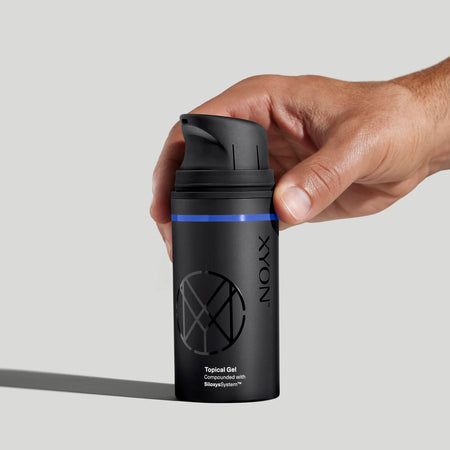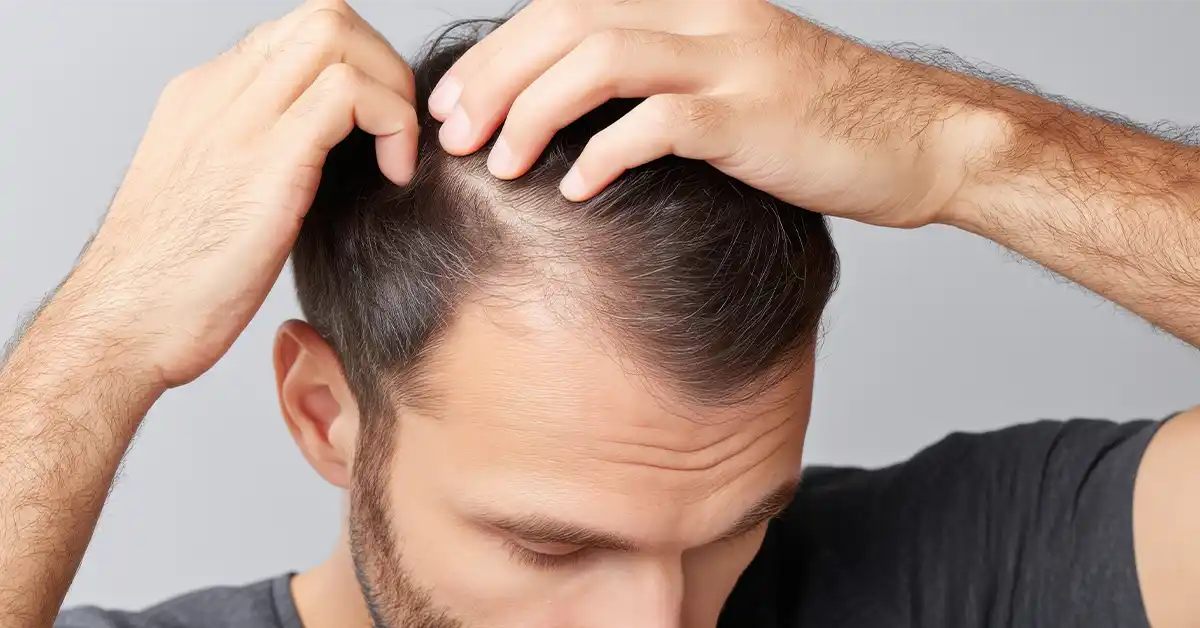The idea that moderate drinking could be beneficial to health has gotten a lot of attention, but it’s unclear whether those benefits also include better sex. Many people swear by alcohol to help with pre-sex jitters, with some even claiming that it makes having sex more enjoyable. Is there a sweet spot for how much you can drink before it starts to take a toll on intimacy? Does alcohol increase the risk of erectile dysfunction? We’ll answer these questions and talk about what you can do if you think you might be experiencing erectile dysfunction.
How does alcohol affect erections?
Alcohol can affect erections via its impact on the nervous system and cardiovascular system. In small to moderate quantities, alcohol can help people feel less inhibited and more relaxed before engaging in sexual activity. Alcohol also causes changes in blood vessels that promote blood flow and prevent blood clot formation, both of which (theoretically) may help with erectile function (Jiann, 2010). These vascular benefits are one reason why some experts think that moderate drinking could have a protective effect on the heart and vascular system in the long term.
Other researchers are more skeptical, arguing that the same heart protecting benefits can be achieved by making smarter lifestyle choices like eating healthy, exercising regularly and quitting smoking (Tsai et al., 2023). For example, it may be harder to recognize and stick to a “beneficial” amount of drinking versus choosing to exercise more—the latter doesn’t increase the risk of liver disease and certain types of cancer.


Experiencing erectile dysfunction as a side effect from hair loss medication? Switch to XYON.
Our topical hair loss solutions are designed to lower the risk of side effects. Better hair, without compromises.
What happens when you drink too much?
Alcohol can increase the risk of experiencing erectile dysfunction. It’s known to have a sedative effect which means that it slows down the nervous system. Blood vessels in the penis rely on sensory information to dilate and alcohol can make it more difficult to get and maintain an erection by decreasing the sensitivity of the penis and interfering with the nerve pathways involved in increasing blood flow.
Additionally, excessive drinking can cause dehydration. Decreased fluid volume can impact erectile function in two ways: it can lead to a temporary drop in blood pressure (further reducing blood flow to the penis) and trigger the release of angiotensin, a hormone that constricts blood vessels to increase blood pressure.
More seriously, in cases of chronic overconsumption, alcohol has been shown to have neurotoxic effects. It can cause damage to the vagus nerve, which plays an important role in sexual function by controlling arousal and orgasm (Arackal and Benegal, 2007). Drinking too much and too often could leave you less interested in sex and affect your ability to fully enjoy it.
How long does it take for alcohol to cause erectile dysfunction?
There isn't a straightforward answer to this question. In general, the body adapts its response to alcohol, especially if you drink regularly. For example, to continue to experience the psychoactive effects of drinking, people may need to drink more, or more often (Jiann, 2010).
For heart benefits, one meta-analysis recommended a daily intake of 20-72 grams of ethanol (there are about 10 grams of ethanol in one standard drink) but didn’t comment on whether there could be impacts on sexual function (Conway, 2005). As for how long it takes before you start to feel the effects of alcohol, its impact on the brain could take as little as 10 minutes to kick in. It’s not clear if this is enough time to have an impact on erectile function.
While we can’t provide definitive guidelines for how much alcohol is “safe” if you want to avoid issues with erectile function, we can share some evidence for the negative effects of alcohol on erectile function in people who have a history of alcohol dependency.
A study on sexual dysfunction in 100 men with a history of alcohol dependency reported average consumption levels ranging from 8-42 drinks per day over a period of 8.59 (± 6.64) years (Arackal and Benegal, 2007). In total, 33 subjects reported erectile dysfunction. 19 of them described difficulties achieving an erection while 13 had trouble maintaining an erection. A separate study observed that roughly a quarter of respondents receiving treatment for alcohol dependency experienced erectile dysfunction (Prabhakaran et al., 2018). The numbers reported in these studies may not be generalizable to the average male population, but the point is that chronic overuse can have a negative impact on sexual health and wellness.
Remember, men can experience erectile dysfunction for a variety of reasons. If you’re finding that you’re having difficulties achieving or maintaining an erection on a regular basis even if you’re drinking minimally (or not at all), it could be a sign that something else is going on. You may want to bring these concerns up with a trusted healthcare professional who can provide guidance on strategies or treatments that may help.


Erectile dysfunction is a possible side effect of oral finasteride.
It's rare, but ED can happen when taking oral DHT blockers due to systemic absorption into the blood. You could lower your risk with XYON.
How long after quitting drinking will erectile function improve?
There isn’t a definitive time frame for how long it could take for erectile function to improve after quitting drinking, but research suggests that it depends on factors like how much alcohol was consumed and for how long.
One study that assessed sexual dysfunction in men with a history of an alcohol-use disorder found that 88.5% of patients showed a significant improvement in erectile dysfunction after 3 months of abstaining from drinking (Karunakaran and Michael, 2022). The study concluded that in addition to how much people drank and for how long, their age and whether they had developed alcoholic liver disease were important to how much their erectile function recovered. This timeframe of 3 months seems consistent with an earlier study that compared rates of sexual dysfunction in people with a history of alcohol abuse who were abstinent for 2-3 months to those who didn’t have a history of dependency. Researchers found no difference between the groups (Schiavi et al., 1995).
Gaining back erectile function is important, but there are many other health benefits that come with the decision to limit alcohol intake. These benefits include improved blood pressure, recovery of heart function and liver function (these can be irreversibly damaged during prolonged alcohol abuse) and lower levels of anxiety and depression (Charlet and Heinz, 2016).
Can drinking improve sexual performance?
Available evidence seems to point to the contrary. In addition to increasing the risk for erectile dysfunction, alcohol has also been associated with decreased sex drive (libido) and premature ejaculation. In reviewing the data, it’s important to keep in mind that studies can vary significantly in design (each with their own limitations) and that a direct causal relationship between drinking and sexual dysfunction has not yet been established. If you’re worried about the effect that alcohol could be having on your sex life, we encourage you to talk to a healthcare professional.
Does alcohol affect sex drive?
Chronic overconsumption of alcohol may lower testosterone, which plays an important role in maintaining a healthy sex drive. Alcohol and one of its byproducts (acetaldehyde) can interfere with the local production of testosterone in the testes. It can also indirectly affect testosterone levels by limiting the production and release of signaling hormones from the hypothalamus that help regulate testosterone levels throughout the body (Koh et al., 2022). In addition to its effects on testosterone levels, alcohol can affect parts of the brain involved in sexual desire and pleasure. A study on sexual dysfunction in patients undergoing treatment for alcohol addiction found that over a third of participants reported low sexual desire (Arackal and Benegal, 2007).
Does alcohol cause ejaculation problems?
Potentially. The 2007 study cited above also observed that men with a history of alcohol dependence reported problems with ejaculation. 37.5% of participants experienced premature ejaculation with varying degrees of severity (occurring within 1-3 minutes of intercourse) while 14 men reported experiencing a lack of pleasure at the time of ejaculation (also known as anorgasmia). These effects on ejaculation are probably connected to the effects of alcohol on the nervous system.
Does alcohol affect fertility?
Data from animal and human studies shows that alcohol consumption may have an impact on fertility by influencing hormone levels, semen quality, genetics and epigenetics (how behaviors and environment shape genetics). We’ve talked about how alcohol can affect testosterone levels, but research has also shown that it can increase blood levels of the hormone prolactin. In men, high levels of prolactin can cause hypogonadism (reduced production of sex hormones in the testicles), lower sperm production and gynecomastia (increased breast tissue) (Finelli et al, 2021).
In a lab setting, incubating human sperm in ethanol was shown to speed up the breakdown of the part of the sperm cell called the acrosome, which is critical to its ability to fertilize an egg (Alvarez et al., 1988). Alcohol and its byproducts have also been associated with a higher rate of DNA damage and abnormal chromosome pairing and folding. These genetic changes can affect the chances of successful fertilization.
Interestingly, a 2017 meta-analysis revealed that daily alcohol consumption was detrimental to semen volume and morphology (structure and form of sperm) but noted that these effects didn’t seem to apply to occasional drinkers, or people who never drank (Ricci et al., 2017). In a subsequent study, Ricci et al. found that men who consumed 4-7 units of alcohol a week actually had improvements in semen quality and quantity (2018). It’s not clear why this is the case, but the type of alcohol could play a role. Red wine, for example, is high in antioxidants and anti-inflammatory compounds, which could be beneficial to sperm motility and survival. Another large-scale cross-sectional study that enrolled over 8000 healthy men concluded that low to moderate amounts of alcohol consumption didn’t affect semen quality (Jensen et al., 2014). Based on the available data, the risks to fertility are probably higher in heavy drinkers.
Does Viagra (generic sildenafil) work with alcohol?
In general, it’s okay to drink and take Viagra or Cialis, two of the most well-known erectile dysfunction medications, at the same time. Neither medication has been known to have a dangerous interaction with alcohol, but you should be aware that excessive alcohol intake can make ED treatment less effective and potentially increase the risk of certain side effects such as flushing and dizziness (Kim et al., 2019).
Viagra and Cialis work by causing blood vessels in the penis to expand, increasing blood flow to this part of the body. As mentioned earlier, alcohol can interfere with this process and in some cases, worsen the blood pressure lowering effects of these drugs. If you’re planning on drinking, it’s important to do so in moderation to avoid affecting the efficacy of your ED medication and keep you and your partner safe. Drinking too much can affect someone's ability to provide enthusiastic consent to have sex.


Erectile dysfunction from hair loss medication can happen. Lower your risk with topical options.
XYON's developed topical hair loss solutions that can help you keep your hair and lower the potential risk of side effects like ED.
Alcohol and erectile dysfunction: takeaway
The jury is still out on whether the potential health benefits of moderate drinking outweigh the risks. What we do know is that drinking too much over an extended period increases the chances of developing a variety of health problems, including erectile dysfunction. The effects of alcohol on the nervous system and cardiovascular system can negatively impact erectile function and other aspects of sexual functioning including sex drive, ejaculation and fertility. These risks are likely higher in heavy drinkers and are probably reversible after quitting drinking.
If you’re experiencing erectile dysfunction, there are things you can do about it. ED medications like Viagra and Cialis can help, but it’s important to work with a trusted healthcare provider to identify what might be causing ED—alcohol may not be the main reason. It’s not just about sex but supporting you in prioritizing your health and wellbeing.
Before you go: are your ED concerns related to using hair loss medication? XYON might be able to help, with treatment options designed to lower the risk for sexual side effects. Start by checking out this article on oral vs topical finasteride.

Dr. Simon Pimstone, MD PhD FRCPC
Physician-Scientist; Founder, Director, and Chief Executive Officer
XYON: Founder, Director, and CEO
Education
Doctorate of Medicine (MD) — University of Cape Town, South Africa — 1991
Genetics (PhD) — University of Amsterdam, The Netherlands — 1998
Internal Medicine (Postgraduate Fellowship) — University of British Columbia (UBC), Canada — 2001
Academic & Clinical Appointments
Clinical Assistant Professor, Division of General Internal Medicine — University of British Columbia
Associate Member, Division of Cardiology, Department of Medicine — University of British Columbia
Faculty — Providence Health Care Heart and Lung Institute
References:
Alvarez, J. G., Lee, M. A., Iozzo, R. V., Lopez, I., Touchstone, J. C., & Storey, B. T. (1988). Ethanol accelerates acrosomal loss in human spermatozoa. Journal of Andrology, 9(6), 357–366. https://doi.org/10.1002/j.1939-4640.1988.tb01065.x
Benegal, V., & Arackal, B. (2007). Prevalence of sexual dysfunction in male subjects with alcohol dependence. Indian Journal of Psychiatry, 49(2), 109. https://doi.org/10.4103/0019-5545.33257
Charlet, K., & Heinz, A. (2016). Harm reduction -a systematic review on effects of alcohol reduction on physical and mental symptoms. Addiction Biology, 22(5), 1119–1159. https://doi.org/10.1111/adb.12414
Conway, D. I. (2005). Alcohol consumption and the risk for disease. Evidence-Based Dentistry, 6(3), 76–77. https://doi.org/10.1038/sj.ebd.6400336
Finelli, R., Mottola, F., & Agarwal, A. (2021). Impact of Alcohol Consumption on Male Fertility Potential: A Narrative Review. International Journal of Environmental Research and Public Health, 19(1), 328. https://doi.org/10.3390/ijerph19010328
Jiann, B.-P. (2010). Effect of Alcohol Consumption on the Risk of Erectile Dysfunction. Urological Science, 21(4), 163–168. https://doi.org/10.1016/s1879-5226(10)60037-1
Jensen, T. K., Swan, S., Jørgensen, N., Toppari, J., Redmon, B., Punab, M., Drobnis, E. Z., Haugen, T. B., Zilaitiene, B., Sparks, A. E., Irvine, D. S., Wang, C., Jouannet, P., Brazil, C., Paasch, U., Salzbrunn, A., Skakkebæk, N. E., & Andersson, A.-M. (2014). Alcohol and male reproductive health: a cross-sectional study of 8344 healthy men from Europe and the USA. Human Reproduction, 29(8), 1801–1809. https://doi.org/10.1093/humrep/deu118
Karunakaran, A., & Michael, J. P. (2022). The Impact of Abstinence From Alcohol on Erectile Dysfunction: A Prospective Follow up in Patients With Alcohol Use Disorder. The Journal of Sexual Medicine, 19(4), 581–589. https://doi.org/10.1016/j.jsxm.2022.01.517
Kim, J. N., Oh, J. J., Park, D. S., Hong, Y. K., & Yu, Y. D. (2019). Influence of Alcohol on Phosphodiesterase 5 inhibitors Use in Middle- to Old-Aged Men: A Comparative Study of Adverse Events. Sexual Medicine, 7(4), 425–432. https://doi.org/10.1016/j.esxm.2019.07.004
Koh, K., Kim, S. S., Kim, J.-S., Jung, J.-G., Yoon, S.-J., Suh, W. Y., Kim, H. G., & Kim, N. (2022). Relationship between Alcohol Consumption and Testosterone Deficiency according to Facial Flushes among Middle-Aged and Older Korean Men. Korean Journal of Family Medicine, 43(6), 381–387. https://doi.org/10.4082/kjfm.21.0173
Prabhakaran, D., Nisha, A., & Varghese, Pj. (2018). Prevalence and correlates of sexual dysfunction in male patients with alcohol dependence syndrome: A cross-sectional study. Indian Journal of Psychiatry, 60(1), 71. https://doi.org/10.4103/psychiatry.indianjpsychiatry_42_17
Ricci, E., Al Beitawi, S., Cipriani, S., Candiani, M., Chiaffarino, F., Viganò, P., Noli, S., & Parazzini, F. (2017). Semen quality and alcohol intake: a systematic review and meta-analysis. Reproductive BioMedicine Online, 34(1), 38–47. https://doi.org/10.1016/j.rbmo.2016.09.012
Ricci, E., Noli, S., Ferrari, S., La Vecchia, I., Cipriani, S., De Cosmi, V., Somigliana, E., & Parazzini, F. (2018). Alcohol intake and semen variables: cross-sectional analysis of a prospective cohort study of men referring to an Italian Fertility Clinic. Andrology, 6(5), 690–696. https://doi.org/10.1111/andr.12521
Schiavi Rc, Stimmel Bb, Mandeli J, & White D. (1995). Chronic alcoholism and male sexual function. American Journal of Psychiatry, 152(7), 1045–1051. https://doi.org/10.1176/ajp.152.7.1045
Tsai, M.-K., Gao, W., & Wen, C. (2023). The relationship between alcohol consumption and health: J-shaped or less is more? BMC Medicine, 21(1). https://doi.org/10.1186/s12916-023-02911-w




